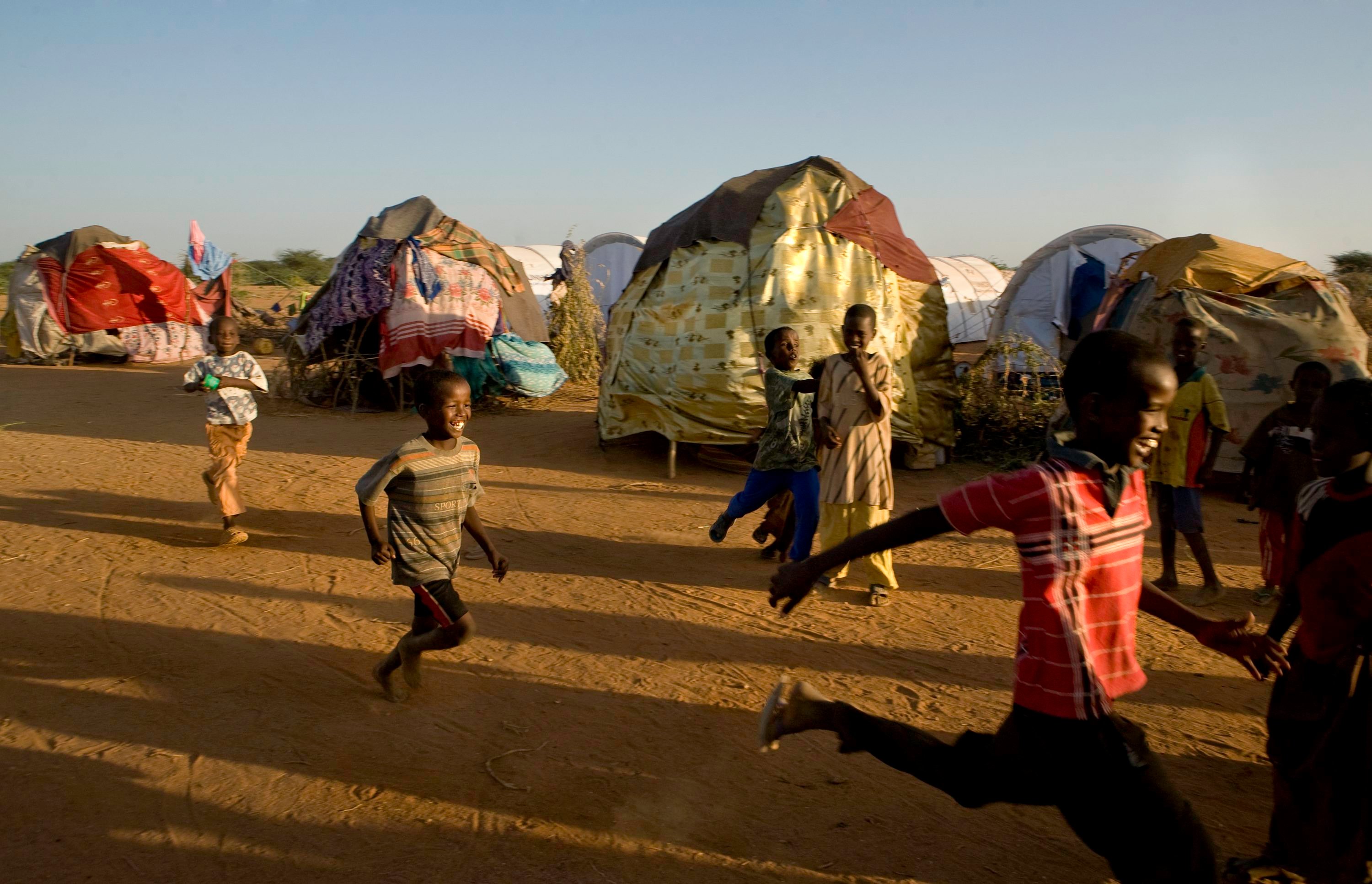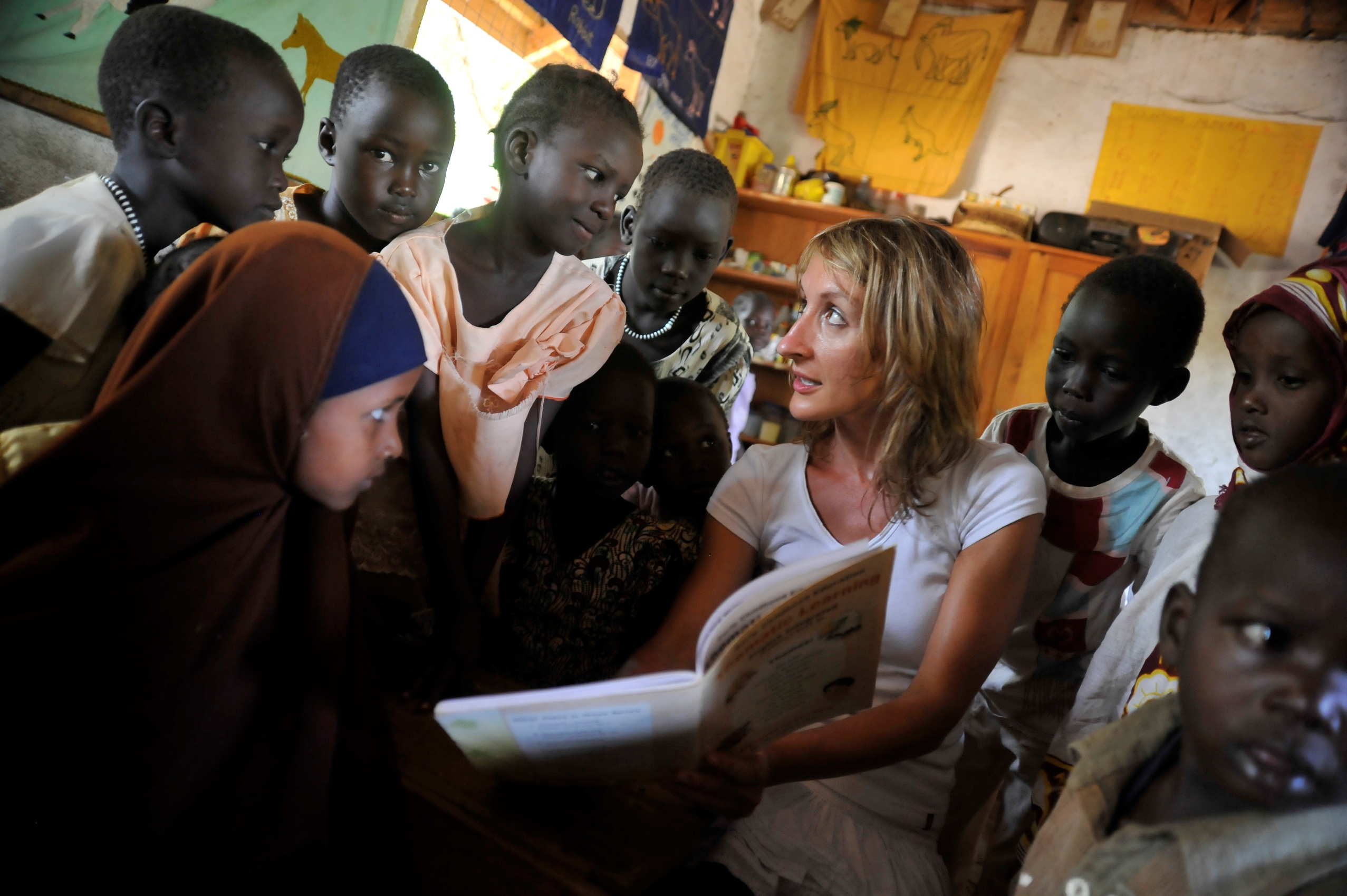Executives visit UNHCR projects in Africa and pledge more help
Executives visit UNHCR projects in Africa and pledge more help

GENEVA, Switzerland, February 27 (UNHCR) - Some of UNHCR's top business partners have pledged to continue supporting the UN refugee agency despite the world's most severe economic crisis in decades. The promise came when members of UNHCR's Council of Business Leaders visited Mozambique, Namibia and South Africa last week.
In what has become almost an annual event, top executives from Manpower, PricewaterhouseCoopers, Microsoft and Young & Rubicam took time off from their busy schedules to visit UNHCR field operations and get a first-hand view of life for displaced people and how the agency is helping them.
This year the four participating Council members visited the three countries in southern Africa, where they met and talked to refugees in camps as well as those living in urban areas such as Johannesburg.
The trip kicked off February 16 in the South African capital, Pretoria, where they toured a refugee reception centre and UNHCR's regional office. They then went to Namibia, visiting Osire Refugee Camp. In Mozambique the group met refugees in Marratane Camp before returning to South Africa, where they wrapped up their five-day visit after travelling to the city of Musina, near the Beit Bridge border crossing with Zimbabwe.
The executives were particularly struck by what they saw in Musina, where UNHCR helps the South African government at a Refugee Reception Office set up last year to handle the increased volume of Zimbabweans crossing the border to seek asylum.
"The processing is taking far too long and people are kept in these desperate situations for far too long a time," Jonathan Murray, who heads Microsoft's technology officer network, commented after visiting the centre. He said the Council would work with UNHCR to address this issue.
David Arkless, president of corporate and government affairs at Manpower, also pledged continuing help, saying his company would make "every effort to work with UNHCR to help bring some new kinds of solutions to situations like this."
In Mozambique's Marratane camp, which houses 5,000 mainly Congolese and Burundian refugees, the executives saw staff use the registration software programme, ProGres, which was developed by Microsoft for UNHCR and is now used in more than 50 countries.
"There are lots of other things you can use the application for and we are looking to assist UNHCR with that. Things like assistance, technical skills development, microfinance, tracking for loans that are made for refugees," Microsoft's Murray said. "All that capability is in that product today and it can really be leveraged to help refugees," he added.
Another outcome of the mission was a commitment by the Council to work with companies in South Africa to fight against illegal labour and to allow refugees to work in decent conditions.
"We want to start a business council that will ask other corporations to check their own company and their supply chains for any illegal labour or abused labour," said Arkless, whose company is the world's largest employment agency.
Last week's mission concluded on Friday with a roundtable meeting with managers of South Africa-based branches of Burson-Marsteller, Manpower, Microsoft, Nike and PricewaterhouseCoopers, in addition to representatives from major law firms, businesses and foundations with operations in South Africa.
In the coming months, the refugee agency hopes to work with all of these partners to create a South African Council of Business Leaders that will hopefully play a constructive role alongside UNHCR in finding durable solutions for the thousands of refugees and asylum seekers in the region.
UNHCR's Council of Business leaders, grouping Manpower, Microsoft, Nike, PricewaterhouseCoopers and WPP, was set up in 2005 to advise UNHCR on how to be more business-like in carrying out its humanitarian work.
By Jerome Nhan in Geneva, Switzerland









